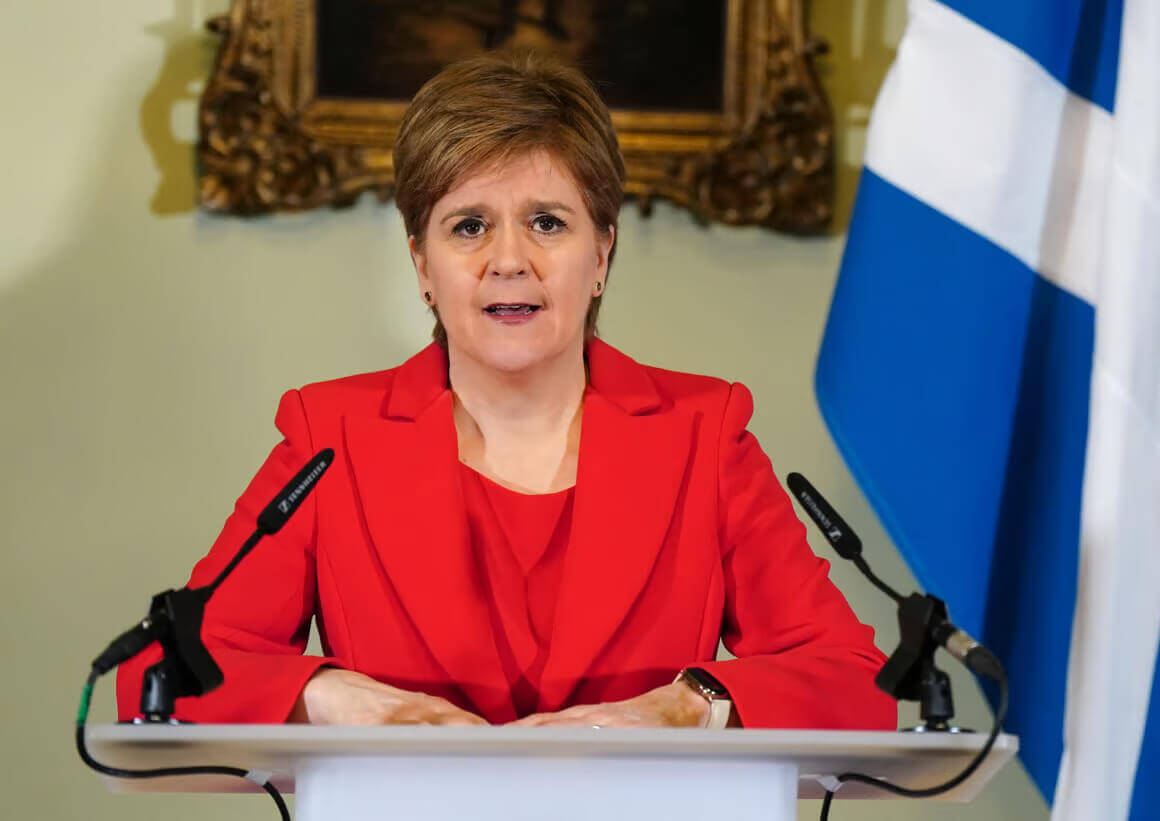After holding the position for eight years, Nicola Sturgeon resigned as Scotland’s First Minister on Wednesday, opening up the post for the country’s leaders and her Scottish National Party’s (SNP) chief.
Nevertheless, Sturgeon will remain in power until her successor is elected. She also clarified that she would serve as a Member of the Scottish Parliament (MSP) at least until the next elections.
🏴 To all the people of Scotland - whether you voted for me or not - please know that being your First Minister has been the privilege of my life.
— Nicola Sturgeon (@NicolaSturgeon) February 15, 2023
Nothing - absolutely nothing - I do in future will ever come close.
Thank you from the bottom of my heart. https://t.co/ZbmmkzyHwK
Overview
In a surprise move, Sturgeon made the announcement during a press conference at her official residence in Edinburgh. However, she said that she was looking to resign as a good politician needed to accept their time to step away and make space for another.
She said, “In my head, and in my heart, I know that time is now. That it’s right for me, for my party and my country.”
The Scottish leader admitted that her resignation was motivated by the pressure and sacrifices that life as a public personality brought. Nevertheless, she vowed to remain politically involved and continue campaigning for Scotland’s independence from the UK.
Whatever our differences, we all recognise that political leadership is demanding and takes its toll on a person and their family.
— Douglas Ross MP MSP (@Douglas4Moray) February 15, 2023
The SNP Government must now use this opportunity to focus on the Scottish people’s real priorities.
My statement on Nicola Sturgeon's resignation👇 pic.twitter.com/r4Lvy5UPuF
Sturgeon was the first female First Minister and has served the position for the longest term yet. She has also been an MSP since 1999.
British PM Rishi Sunak celebrated Sturgeon’s “long-standing public service” despite their disagreements.
SNP Leadership in Question
As a result of Sturgeon’s decision, the SNP’s national executive committee has decided to meet on Thursday to finalise a timeline for the appointment of a new leader. Nicola Sturgeon provided a reassurance of the party’s “array of talent.”
📣 @NicolaSturgeon: "Scotland is a changed country since 2014, and in so many ways it is changed for the better."
— The SNP (@theSNP) February 15, 2023
💛 From being the first woman and longest serving First Minister, to the Baby Box, expansion of childcare, leadership through Covid and much more.#ThankYouNicola pic.twitter.com/gVFVHmeqiC
To be appointed as SNP’s leader, a candidate will need the support of 100 members of SNP’s 20 branches. Nevertheless, party president Michael Russel said that the appointment process will be “shortened.”
Several candidates could replace Sturgeon, including incumbent Deputy First Minister John Swinney, Finance Secretary Kate Forbes, Health Secretary Humza Yousaf, and Justice Secretary Keith Brown.
Recent Pressures on the Government
🚨 BREAKING
— Openly 🏳️🌈 (@Openly) February 15, 2023
🏴 Nicola Sturgeon has resigned as First Minister of Scotland after eight years in the job.
🏳️⚧️ While Sturgeon recently became embroiled in a row over trans policies in Scotland, she said those issues were "not the final straw" leading to her resignation. pic.twitter.com/Svxd9BbOEx
Sturgeon clarified that her decision was not a result of the “latest period of pressure,” which indirectly references the recent controversies surrounding gender recognition amendments, transexual prisoner rights, and the debate on a Scottish referendum.
The new leader will have to decide whether they will abandon or adopt Sturgeon’s plan to approach the upcoming March elections as a de facto referendum. Support for Scottish independence from the UK has surged since Brexit, even as Scotland voted in favour of the EU. The idea of a referendum has been opposed by Downing Street and successive PMs, including Boris Johnson, Liz Truss, and Rishi Sunak.

